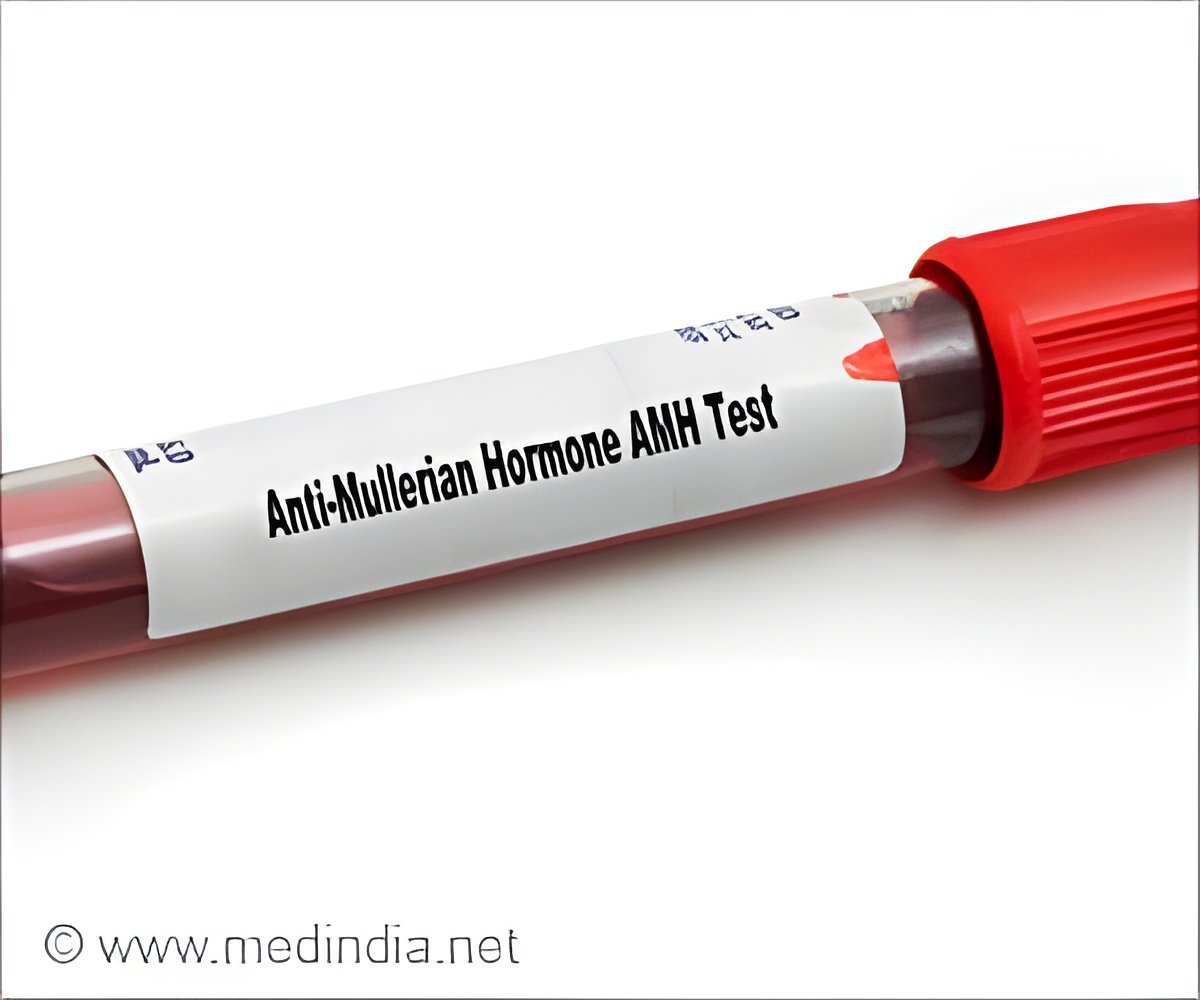Watch out women! Anti-Mullerian Hormone (AMH) test is not a reliable fertility prediction tool.

The researchers initiated the study, which is published in Human Reproduction, one of the world’s leading reproductive medicine journals, because of the large amount of misleading and incorrect information promoted to women about the anti-Mullerian hormone (AMH) test on websites, including fertility clinic websites, and via social media (1✔ ✔Trusted Source
Women's interest, knowledge, and attitudes relating to anti-Mullerian hormone testing: a randomized controlled trial
Go to source).
‘Most women are not interested in getting an anti-Mullerian hormone (AMH) test when given evidence-based information. #anti-Mullerianhormone #AMH #FertilityTest’





Advertisement
What is Anti-Mullerian Hormone (AMH) Test?
AMH is measured by a blood test that is considered to give an indication of the number of eggs available in the ovaries of adult women, but not of the quality of these eggs. The test can be helpful in fertility treatment as it indicates the approximate number of eggs that can be retrieved for in vitro fertilization (IVF) or egg freezing, but it cannot reliably predict the chances of conceiving or the specific age of menopause for individual women. For this reason, the American College of Obstetricians and Gynecologists strongly discourages AMH testing for women not seeking fertility treatment. However, Dr. Tessa Copp, a post-doctoral research fellow at the School of Public Health, the University of Sydney, Australia, and other researchers have found that the AMH test is being promoted increasingly as a way for women to find out about their fertility and when they will go through menopause.Advertisement
Is AMH Testing Really Necessary for Women?
Dr. Copp said: “Companies, including some accredited fertility clinics, are now selling the test direct to consumers, falsely promising women detailed insights into their fertility potential. We undertook this study due to seeing a plethora of false and misleading advertising by online companies and on social media, and hearing of friends who were tested for inappropriate reasons, thinking it was a test of their fertility, and who then subsequently made significant life changes based on the test result.”Dr. Copp and her colleagues in Australia and The Netherlands designed an online randomized controlled trial that ran between November and December 2022. They recruited 1004 women aged between 25-40 years, living in Australia or The Netherlands, who had never given birth, were not currently pregnant but would like to have a baby at some point and who had never had an AMH test. A total of 967 were included in the final analysis.
They randomly allocated the participants to receive one of two information pamphlets about the AMH test: 1) an evidence-based pamphlet that had been co-designed with the help of women, general practitioners, gynecologists and the multi-disciplinary team running the trial; or 2) a pamphlet containing content from an existing website promoting the test direct to consumers in Australia (the control arm of the study). The pamphlets were available in English and Dutch.
After the women had been selected for the trial and randomized to view either the evidence-based information or the control information, the researchers asked them to complete a questionnaire in which they asked the women about their interest in having an AMH test; this was measured on a seven-point scale, 1 = ‘definitely NOT interested’ to 7 = ‘definitely interested’.
They also asked them about their intention to discuss the test with their doctor, their intention to have the test, their attitudes, knowledge, emotional response to the information, worry, and anticipated psychological reaction to having an AMH test, anticipated impact on family planning and their satisfaction with the information.
The researchers found that those who had received the evidence-based information had less interest in having an AMH test. The mean average on the seven-point scale for this group was 3.87. Women who had viewed the information from an existing website had more interest, with a mean average of 4.93.
“Given that the mid-point of the scale is four, this means that the women given the evidence-based information were not interested, on average, in having an AMH test, while women in the control group were interested, on average,” said Dr. Copp.
"Women who viewed the evidence-based information had a more accurate understanding of what the test could tell them. They also saw it as a less valuable test, and were less interested, on average, in discussing it with their doctor or getting tested, compared to the control group."
“These findings show that when enabled to make an informed decision through the provision of evidence-based information, women are not interested in getting an AMH test. This contrasts to previous studies showing women are interested in testing when uninformed of the test’s limitations. It illustrates the importance of ensuring women are fully informed about what the test can and cannot do.”
The researchers plan to disseminate the evidence-based information as widely as possible, to clinics, clinicians, companies and other organizations, and via social media.
“We hope the co-designed, evidence-based information developed in this study will help both clinicians and patients in navigating for whom, and in what circumstances, the test is useful,” she said.
Advertisement
Misleading and False Claims About the Anti-Mullerian Hormone Test
“Clinics that provide misleading information are breaking codes of practice, such as the Reproductive Technology Accreditation Committee scheme in Australia, and should be held to account. Regulatory bodies need to do better at ensuring clinics are transparent and provide accurate information, and act against any parties promoting false and misleading information. We were concerned to find that women in the control group considered the misleading information to be trustworthy and balanced.”This is the first study to co-design and test the efficacy of evidence-based information about the AMH test. A limitation is that the women were more highly educated than the general Australian and Dutch populations, and some measures, such as the influence of the test on family planning, were hypothetical.
Reference:
- Women’s interest, knowledge, and attitudes relating to anti-Mullerian hormone testing: a randomized controlled trial - (https://doi.org/10.1093/humrep/deae147)
Source-Eurekalert















